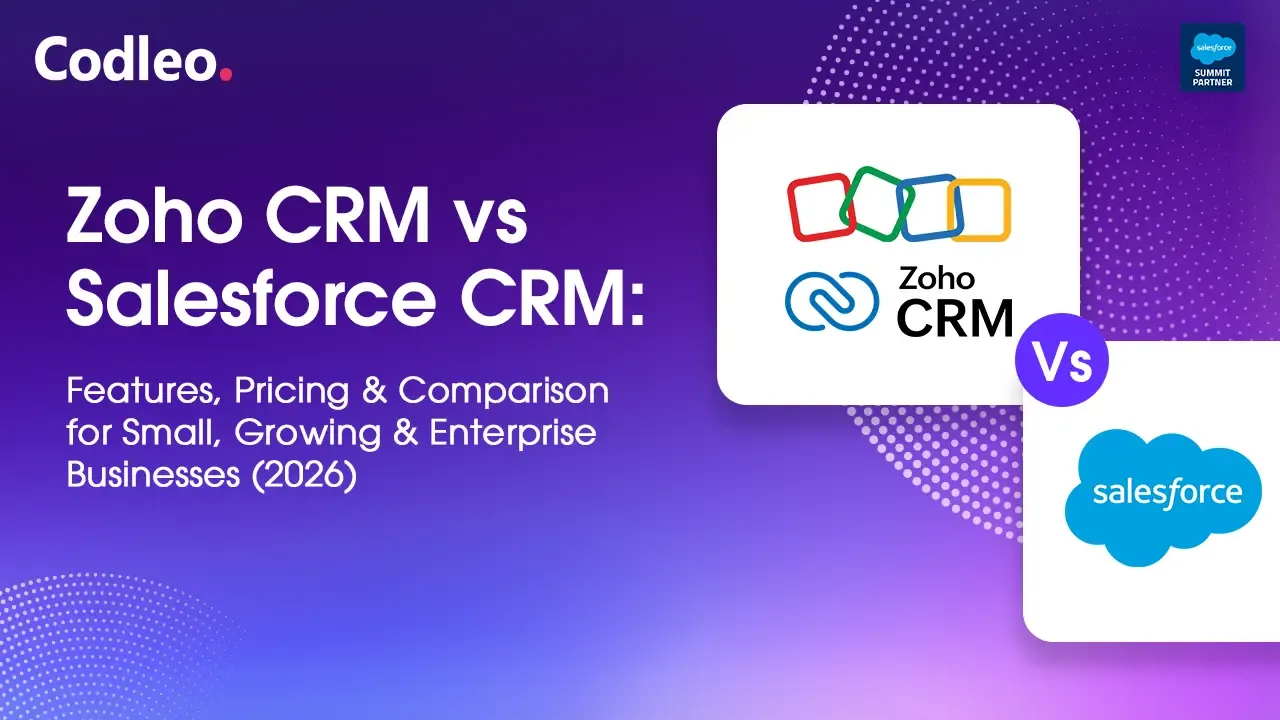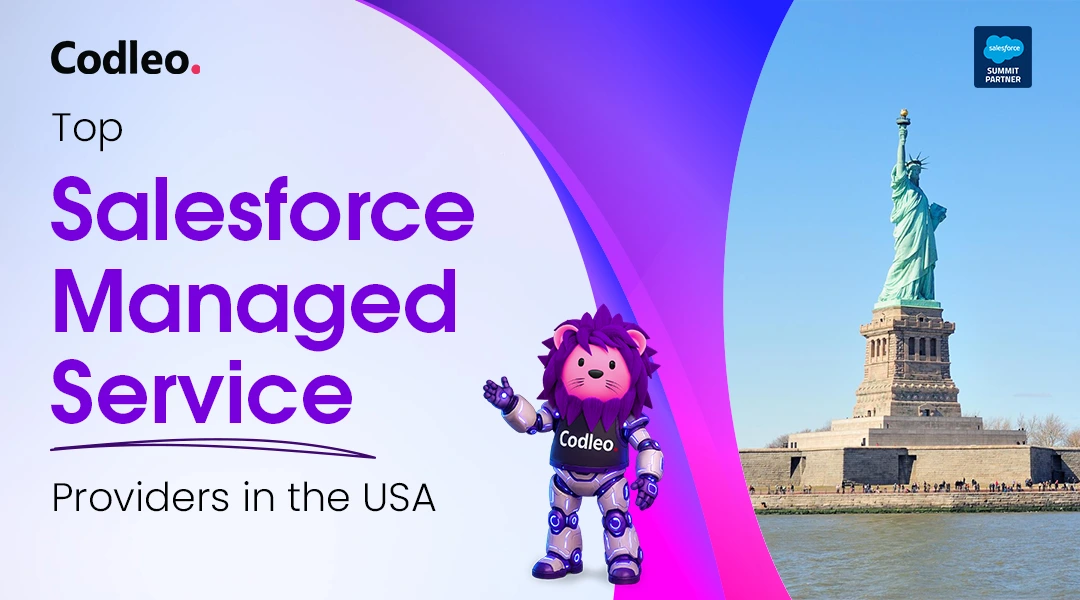Publish date:
As competition grows, businesses need innovative technology solutions to stay ahead. Two key tools for success are Customer Relationship Management (CRM) and Enterprise Resource Planning (ERP). CRM helps companies build stronger customer relationships, while ERP streamlines day-to-day operations, including inventory, supply chain, and financial management. When used together, CRM and ERP give businesses a powerful way to improve service, increase efficiency, and make better decisions. To truly succeed in today’s digital world, it’s essential to understand how CRM and ERP complement each other—and the unique benefits each offers for your organization. This text will explore the details of CRM and ERP integration, including their features, benefits, and the powerful impact they can have when combined.
What is Customer Relationship Management?
Having a fantastic product or service alone is insufficient in today's business environment. To differentiate yourself from your rivals, you must also offer top-notch customer service. Businesses can now manage and enhance customer relationships with Customer Relationship Management (CRM) software. CRM systems gather, organize, and analyze data and customer interactions. It helps businesses understand their clients' requirements, preferences, and behavior.
CRM systems help companies efficiently manage customer data. Contact information, purchase history, support requests, and correspondence logs are all included. Businesses can provide their clients with individualized, focused experiences by centralizing all of this data. This strategy increases client loyalty and fosters company expansion.
CRM systems automate customer data management and interaction management tasks. Sending marketing emails, monitoring customer service inquiries, and generating reports are all part of it. Businesses can enhance their operations and save time and resources by automating these tasks. It enables them to focus more on client interaction and increasing client satisfaction.
Using CRM systems helps businesses stand out by improving customer service, increasing sales, and enhancing marketing efforts. These systems offer a comprehensive view of customer interactions, enabling enterprises to make better decisions, build stronger relationships, and succeed.
What is ERP?
ERP, or enterprise resource planning, is a term used in business management. It is an effective tool that transforms how businesses operate. ERP systems link various departments within an organization, whereas CRM systems focus on managing customer relationships. Teams can collaborate more effectively and manage resources more effectively with this central approach. By using ERP, businesses can simplify their processes and improve overall performance.
ERP systems consist of several integrated modules that support essential business functions like accounting, finance, supply chain management, manufacturing, human resources, and project management. These modules work together in real time, sharing data to give businesses an immediate, accurate view of their operations. This interconnectedness improves how companies plan and make decisions.
By automating routine tasks, ERP systems reduce manual workload and boost productivity. They ensure smooth data flow across departments, breaking down silos and encouraging collaboration. This seamless exchange of information helps teams communicate more effectively and work together more efficiently, contributing to overall business success.
Implementing ERP systems gives businesses a competitive advantage by streamlining processes and cutting costs. These systems offer a comprehensive overview of company performance, helping leaders make well-informed decisions and plan for the future. In today’s fast-paced market, ERP solutions are vital tools that help companies stay agile, responsive, and ahead of the curve.
CRM Benefits
CRM software can significantly improve how a business works. It enhances customer satisfaction and boosts overall success. Here are some key benefits of using CRM solutions:
-
Improved customer service: CRM systems help businesses manage customer interactions in one place. It ensures customers receive quick, personal help. Support teams can access customer details and past interactions to resolve issues faster. As a result, customers are more satisfied and likely to stay loyal.
-
Increased customer retention: CRM systems help businesses understand their customers' needs and wants. This understanding allows firms to adjust their products, services, and marketing to meet customer expectations. As a result, they can keep customers coming back and boost repeat business.
-
Automated sales and marketing processes: CRM systems help automate many sales and marketing tasks. They handle lead generation, manage contacts, email campaigns, and forecast sales. This automation streamlines workflows, reduces manual work, and lets sales and marketing teams focus on strategies to grow revenue.
-
Valuable insights into customer behaviour: CRM systems gather and analyze a large amount of customer data. This data gives businesses valuable insights into what customers like, how they behave, and their buying habits. With this information, companies can make informed decisions, improve their marketing efforts, and develop targeted plans to attract and retain customers.
-
Enhanced collaboration and communication: CRM systems help different departments within a company work together and communicate more effectively. They ensure customer information is shared easily. This teamwork improves the customer experience and allows businesses to respond to customer needs more effectively.
-
Increased profitability: Using CRM systems helps businesses improve sales and marketing, making the sales cycle more efficient. It can lead to higher revenue. Additionally, automating tasks and keeping customers happy can reduce costs, thereby increasing the business's profits.
CRM systems are tools that help businesses manage their customer relationships. They enable companies to provide excellent customer service and support business growth.
ERP Benefits
Enterprise resource planning (ERP) software helps businesses operate more efficiently and generate more revenue. It does this by improving how different departments work together. ERP systems can reduce costs, improve customer service, and enable better decision-making.
One main benefit of ERP systems is that they automate repetitive tasks. It reduces the manual work employees have to do and allows them to focus on more critical tasks. For instance, ERP systems can handle order processing, manage inventory, and automatically generate financial reports. It saves businesses time and money while also improving accuracy and consistency.
ERP systems help businesses make better decisions. They provide a single source of truth for all data, enabling companies to allocate resources more effectively, manage inventory, and serve customers. For example, ERP systems can identify trends in customer demand, helping businesses decide what products to produce or sell.
ERP systems can help businesses improve customer service. They give customer service representatives access to all the information they need about a customer. It allows them to resolve issues quickly and efficiently. As a result, customer satisfaction and loyalty can increase.
ERP systems can help businesses cut costs. They automate repetitive tasks and improve decision-making, saving time and money. ERP systems also help companies identify and eliminate waste, further lowering costs.
What is the Difference Between CRM and ERP?
CRM and ERP systems are essential software tools for businesses. They have different purposes and focus on other areas of business operations.
CRM systems help businesses manage their customer interactions and relationships. These systems allow companies to store and analyze customer data, track interactions, and handle sales and marketing campaigns all in one place. By using CRM tools, businesses can better understand their customers, tailor experiences to their needs, and provide excellent customer service.
ERP systems are much broader in scope and cover more business areas. They combine functions such as accounting, supply chain management, manufacturing, finance, human resources, and project management. By using an ERP system, businesses can see how all parts of their operations work together. It helps simplify processes and improve teamwork across departments.
The main difference between CRM and ERP systems is their focus. CRM systems are customer-centric, helping businesses manage their client relationships. In contrast, ERP systems cover the entire industry, helping manage all parts of operations.
Sales, marketing, and customer service teams mainly use CRM systems. In contrast, ERP systems serve a broader range of users across various departments, including finance, accounting, operations, and human resources.
CRM and ERP systems offer significant benefits for businesses. CRM systems help improve customer satisfaction, boost sales, and enhance marketing efforts. ERP systems make operations more efficient, lower costs, and support better decision-making.
If a business wants to improve customer relationships and boost sales, investing in a CRM system is essential. If the goal is to streamline operations and get a complete view of the business, then an ERP system is the better option.
CRM and ERP Similarities
CRM and ERP are different types of software, but they share some features. Both help businesses manage and organize data, track customer interactions and sales, and create reports and analytics. They can also work with other business applications. In the end, both CRM and ERP aim to improve customer service and satisfaction.
CRM and ERP both focus on managing data. They collect and store information about customers, sales, and other business activities. Businesses can use this data to create reports and analyses, which help them make better decisions to improve their operations.
CRM and ERP systems both help track customer interactions and sales. CRM systems monitor customer activities like phone calls, emails, and website visits. ERP systems track sales activities, including orders, invoices, and payments. Using this information can enhance customer service and boost sales performance.
Both CRM and ERP systems can connect with other business applications. This connection helps businesses share data and work more efficiently. For example, a CRM system can connect with an ERP system to share customer information. Similarly, an ERP system can link with a financial management system to share financial information.
Understanding the differences between CRM and ERP helps businesses choose the right system. CRM systems work best for companies that need to manage customer interactions and sales. ERP systems are better for businesses that want to oversee all parts of their operations.
Do I need CRM, ERP, or both?
Deciding whether you need a CRM (Customer Relationship Management) or ERP (Enterprise Resource Planning) system depends on a few key factors. These include your business size, industry, and specific business goals.
If you run a small business with simple operations, a CRM system might be all you need. It can help you track customer interactions, manage sales, and provide customer service. However, if your business is larger or more complicated, you might need an ERP system. An ERP system can help manage all parts of your operations, including accounting, finance, inventory, and manufacturing.
Here are some factors to consider when deciding whether you need a CRM or ERP system, or both:
-
The size of your business: CRM systems are best for small businesses that have simple operations. ERP systems work better for larger companies with more complex operations.
-
The nature of your industry: CRM systems are beneficial for businesses in sales, marketing, and customer service. On the other hand, ERP systems work best for companies in manufacturing, distribution, and retail.
-
Your specific business goals: CRM systems can help you provide better customer service, boost sales, and grow your business. ERP systems can help you work more efficiently, lower costs, and make smarter decisions.
If you are unsure whether you need a CRM, an ERP, or both, talk to a business software expert. They can help you understand your needs and suggest the right software for your business.
To decide whether you need CRM, ERP, or both, start by assessing your business needs and goals. If you’re unsure which software is right for you, consider talking to a business software expert. They can help you evaluate your needs and recommend the best software solution for your business.
Key Features of ERP vs. CRM
CRM and ERP systems have different features for their users. CRM systems focus on customer-related tasks, like managing contacts, tracking sales, and providing customer service. These functions help businesses gather customer information, improve communication, and offer tailored experiences.
ERP systems help manage a company's internal operations. They include tools for financial management, supply chain management, inventory control, and project management. These tools enable businesses to improve processes, reduce costs, and make better decisions using real-time data.
The key features of CRM systems include:
-
Contact management: This system gathers all customer information in one place. It includes contact details, interactions, and preferences. It gives a clear view of customer relationships.
-
Sales tracking: Sales teams can track leads, opportunities, and deals. It helps them monitor progress and find potential problems.
-
Customer service: This system helps you manage customer service issues, such as tickets, inquiries, complaints, and feedback. It ensures that these are resolved quickly and effectively.
-
Marketing automation: It streamlines marketing campaigns, automates tasks, and personalizes customer communications.
-
Analytics and reporting: This information helps us understand how customers behave, how well our sales are doing, and how our business is performing overall. This insight supports better decision-making.
The key features of ERP systems include:
-
Financial management: Handles financial transactions, manages payments and incoming money, creates budgets, assesses risks, and makes forecasts. It helps provide a clear financial view of the business.
-
Supply chain management: It improves the movement of goods and services from purchasing to delivery. It ensures efficient inventory management and timely order fulfillment.
-
Inventory control: Tracks inventory levels, reorder points, and warehouse locations. It helps reduce stockouts and improve storage space.
-
Project management: This text helps plan projects, assign resources, schedule tasks, and track progress to ensure projects run smoothly.
-
Business intelligence: This tool provides advanced analytics and reporting features. It helps businesses analyze data, find trends, and make decisions based on facts.
CRM and ERP systems have features that support different user groups in an organization. Sales, marketing, and customer service teams mainly use CRM systems. On the other hand, ERP systems are used by a broader range of departments, including finance, accounting, operations, and human resources.
Integration of ERP and CRM Systems
Integrating ERP (Enterprise Resource Planning) and CRM (Customer Relationship Management) systems enables businesses to view all their data in one place. It makes it easier to provide excellent customer service. This section explains the benefits of this integration, including better data management and consistency, improved customer service, reduced customer acquisition costs, smoother order management, and more accurate inventory management.
By integrating ERP and CRM systems, businesses can ensure that customer information is consistent across all departments. Sales representatives, marketing teams, and customer service staff will all have access to the same up-to-date customer data. It can improve customer service and increase sales. For example, if a customer calls with a question about their order, the customer service representative can look up the customer's order history and give them the information they need.
Integrating ERP and CRM software can improve customer service and help businesses manage orders more efficiently. When customers place orders in the CRM system, they can automatically be sent to the ERP system. This system can then create invoices and arrange shipments. This process saves time and money by reducing the need for manual data entry.
Integrating ERP and CRM systems can help businesses manage their inventory effectively. With a clear view of inventory levels, companies can prevent running out of stock or having too much. It can lead to more sales and lower costs.
In conclusion, combining ERP and CRM systems offers businesses several benefits. These include better data management and consistency across systems, improved customer service, easier order management, and accurate inventory tracking. By merging these two systems, businesses can boost their efficiency and increase their profits.
Salesforce ERP integration and CRM
Businesses can improve customer service and efficiency by using Salesforce’s CRM and ERP solutions together. Salesforce CRM helps manage customer interactions and build relationships. Salesforce ERP streamlines various business operations. By integrating these systems, companies gain a complete view of their customers. This integration enhances customer service and enables businesses to deliver personalized, exceptional service.
One key benefit of this integration is that it automates customer service tasks. When customers have questions, representatives can quickly access their account and order details in Salesforce CRM. It allows them to provide fast and accurate answers. Additionally, Salesforce ERP helps track inventory and shipping data, enabling sales representatives to give customers the latest order updates. It builds trust and satisfaction.
This integration enhances sales by helping businesses find potential customers through data analysis of their interactions and sales history. With this information, companies can create targeted marketing campaigns that improve the chances of making sales and increasing revenue. Additionally, Salesforce ERP helps manage sales orders and track inventory, ensuring businesses have enough stock and do not miss sales opportunities.
Salesforce CRM and ERP work well together, offering many benefits. These include better customer service, more sales, and lower costs. By providing a clear view of customer data, these systems help businesses make wise decisions, improve their processes, and create a standout customer experience. Using this integration is a wise choice for long-term growth and building customer loyalty.
Businesses that want to succeed today should think about using Salesforce CRM and ERP solutions. These tools can improve customer service, develop more data-driven sales strategies, and increase operational efficiency. Overall, they help companies achieve long-term success and keep customers happy.
Choose the Right Solution for Your Business
Deciding between ERP and CRM depends on your company’s unique priorities and goals. If your primary focus is managing customer relationships, sales, and lead tracking, then investing in a CRM system is the wise choice. CRM helps streamline your sales process, improve marketing efforts, and boost customer retention—essential for businesses driven by customer engagement, such as e-commerce or service industries.
On the other hand, ERP systems are designed to optimize internal operations, such as finance, inventory management, and supply chain management. Companies dealing with complex back-office processes—such as manufacturing or retail—benefit most from ERP. By automating these tasks, ERP drives efficiency, reduces costs, and ensures smoother overall operations.
For growing businesses, starting with CRM to enhance customer interaction and then adding ERP for operational management is an effective strategy. Integrating both systems creates a unified environment that connects customer-facing activities with back-office processes, enabling faster communication and better decision-making.
At Codleo Consulting, we understand the importance of choosing the right solution to scale your business. With over a decade of experience and a team of certified experts skilled in platforms such as Salesforce and Codleo, Codleo Consulting is dedicated to helping you implement, customize, and integrate ERP and CRM systems seamlessly. Our goal is to drive your business growth and achieve operational excellence through tailored, efficient technology solutions.
Whether your goal is to refine customer engagement with CRM or streamline internal workflows with ERP, Codleo is your trusted Salesforce partner for end-to-end support and success. Reach out to us at consult@codleo.com to learn how we can help transform your business.
Conclusion
Understanding the difference between ERP and CRM isn’t just about comparing two systems—it’s about choosing the right technology to support your business goals. ERP helps streamline internal operations and manage costs, while CRM focuses on building stronger customer relationships and boosting revenue.
Both systems are essential, and your decision should take into account your unique business requirements, whether they are to improve customer engagement or streamline operations. Leveraging both CRM and ERP offers businesses striving for sustainable growth the best of both worlds, enabling smooth coordination across your entire enterprise to boost productivity and deliver exceptional customer experiences.
Get started with easy Salesforce integration today—boost your business efficiency and customer connections effortlessly.















